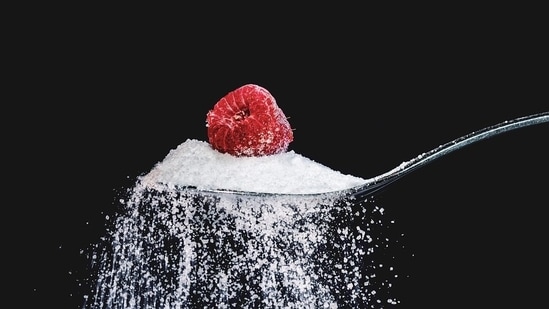Updated On Jan 28, 2023 08:29 AM IST
Nature is trained to produce food and bring it to our plate as per the weather. It is important to follow these 5 food habits in winter to keep you away from health issues
1 / 6
View Photos in a new improved layout
Updated on Jan 28, 2023 08:29 AM IST
When winters approach, our eating habits also change and we crave for more warm foods, soups, stews, hot beverages etc rather than cold foods, juices, shakes, cold beverages etc. Nature is also trained to produce food and bring it to our plate as per the weather. In an interview with HT Lifestyle, Dr Charu Dua, Chief Clinical Nutritionist at Amrita Hospital in Faridabad, revealed to Zarafshan Shiraz – 5 important food habits in winter to keep you away from health issues. (Photo by Olena Bohovyk on Pexels)
2 / 6

View Photos in a new improved layout
Updated on Jan 28, 2023 08:29 AM IST
1. Follow nature, eat seasonal eat local: Eat what is available in winter season and is best suited to your body. Green leafy vegetables like methi, saag, garlic, ginger, different flours like (makka, ragi, jowar etc) produce warmness in body .Fruits and vegetables like oranges, amla, guava, kiwi, broccoli, lemon, papaya, strawberry etc are packed with powerful antioxidants and Vitamin C which help fight infections. Eggs have high biological protein. They not only produce warmness but are also power packed with nutrients such as selenium, zinc, iron, copper and vitamin D, B6 and B12. On the other hand, fishes are rich sources of omega-3 fatty acids, protein and vitamin D, so include them in your diet. (Pixabay)
3 / 6

View Photos in a new improved layout
Updated on Jan 28, 2023 08:29 AM IST
2. Energize your morning with healthy breakfast and 10 minutes exercise: We generally get up late in winters, so we either skip our breakfast or if we are working from home or are housewife, we skip breakfast or have late breakfast. We all know breakfast is a healthy meal of the day to kick start our metabolism, which will produce warmness in our body and take away the lethargy. It also supplies other crucial nutrients needed for optimal health while replenishing your supply of glucose to increase our energy and alertness. Also, start your day with indoor exercise, turn on party song and move your body. Static jogging, static cycling at home, stretch exercise, Yoga, whatever you choose – exercise will turn your mood to happy mood. Just get the blood pumping and fill your lungs with oxygen. Serotine levels are generally low in winter as on certain days we are devoid of sunshine, Exercise is one way to keep your mood healthy, which will keep you off diseases. The day you have the opportunity to take sunbath, do take it. (Photo by Amar Preciado on Pexels)
4 / 6

View Photos in a new improved layout
Updated on Jan 28, 2023 08:29 AM IST
3. Stay Hydrated: In winters we don’t feel thirsty hence, often we consume less fluids and we all know the importance of staying hydrated. In winters, sipping warm fluids like warm water, hot herbal teas or warming broths can count towards your hydration. Carry a water bottle with you wherever you go to promote daily hydration. Have a designated water container at your workstation if you’re working from home and refill it as needed. Consume your meal. In addition to including water-rich fruits and vegetables, including green leafy vegetables, citrus fruits, melon, tomatoes, and cucumbers, homemade soups can help you fulfil your fluid demands during winter. Limit your intake of caffeine, sweet beverages and aerated beverages. Establish a strategy for staying hydrated with the aim of consuming a particular amount of water each day. (pexels)
5 / 6

View Photos in a new improved layout
Updated on Jan 28, 2023 08:29 AM IST
4. Snack smart with portion control: Focus on snacks which are healthy and give you warmness and have health benefits. One thing we also need to remember is to control the portion size of our snacks. A handful of nuts, a handful of peanuts, three bean salad (potein packed), fruits with seeds, quinoa snack, tofu, etc will not only take care of weight issues, as we tend to gain extra weight during winters but additionally provide iron, zinc, proteins in your diet. (Photo by min che on Pexels)
6 / 6

View Photos in a new improved layout
Updated on Jan 28, 2023 08:29 AM IST


